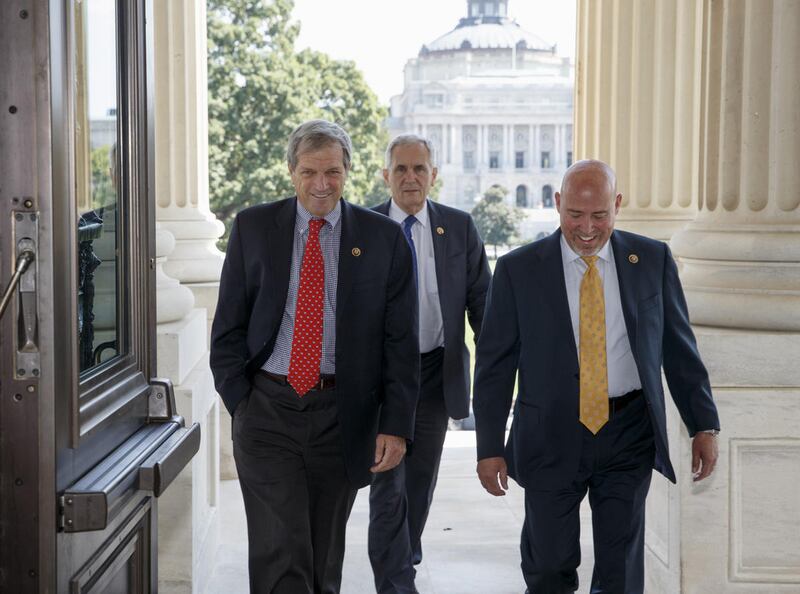“Never again” was the sentiment of many congressional Republicans after a 13-day shutdown of the federal government two years ago. Public opinion blamed the GOP and the White House estimated the shutdown resulted in a $6 billion hit to the nation's GDP.
Now a shutdown strategy has been resurrected by a small group of House and Senate Republicans in an attempt to defund Planned Parenthood.
Congress needs to pass spending bills each fall that appropriate funds based on agreements made during the spring budget process. The strategy to defund Planned Parenthood hinges on representatives' ability to bottle up the umbrella "continuing appropriations" bill, which would include Planned Parenthood funding, unless their demands are met.
"It’s an exercise in futility," said Senate Majority Leader Mitch McConnell, R-Ky., to Politico. "I’m anxious to defund Planned Parenthood," but "the honest answer of that is that's not going to happen until you have a president who has a similar view."
McConnell is hoping to avert the crisis with a short-term funding bill and a compromise that would ban abortions after 20 weeks.
But he won't have much time to make that happen. The House is not in session next week and will only have a few days before the deadline of Sept. 30, when the government's fiscal year ends.
Stan Collender of Forbes magazine estimates a two-thirds chance the government will shut down, noting the controversial Iran deal will only hurt negotiations.
If the government does shut down, Obama will have some discretion on what keeps running and what doesn't — in other words, how it affects the general public and businesses.
"If the most recent shutdown — in 2013 — is an indication, unemployment-benefit checks will go out, and Americans will keep getting their mail delivered through the U.S. Postal Service," MarketWatch reported.
FDA and EPA inspections are likely to stop, and a shuttering of the national parks is likely to occur, which will impact federal employees and local economies tied to that tourist traffic. In 2013, when federal workers were told to stay home, 6.6 million workdays were furloughed.
The BBC reported that the 2013 shutdown also hurt the world's perception of the U.S., hurting consumer confidence and foreign states' confidence in American credit.
Interior Secretary Sally Jewell said Tuesday her department is already preparing for the worst, according to the Huffington Post.
"We have to do shutdown planning. Unfortunately, we're getting pretty good at that," Jewell said.
A new government shutdown would likely mean federal workers, totaling 3 million, will be furloughed. Federal loans that homeowners and small businesses receive could be put on hold — in 2013, private lending was also disrupted because banks couldn't access government data to verify identities. However, mandatory entitlement spending, including Social Security and Medicare, would continue.
Murmurs of a possible shutdown have grown louder as the summer has come to a close. Anti-abortion advocates were outraged by undercover videos released in July that showed Planned Parenthood officials describing their practices of recouping costs by selling body parts, or fetal tissue, to researchers. Since then, presidential candidate Sen. Ted Cruz, R-Texas, has worked to rally evangelical support to end funding for the women's health organization.
Rep. Mick Mulvaney, R-S.C., has secured the signatures of 31 representatives to refuse to pass any bill that funds Planned Parenthood, according to The Washington Post. That sum is large enough to force Majority Leader John Boehner, R-Ohio, to make a deal with Democrats to avoid the shutdown.
“Until Mitch (McConnell) wakes up and realizes that he’s no different than Harry Reid right now, it’s going to be a real rugged couple of months,” Mulvaney said in The Post.


